reviewed the matter of a coaling station on an island of the
Farasan Islands group in the southern Red Sea that was
built for the exclusive use of German warships in 1901, but
currently (1917) occupied by the English fleet during
World War I.
The purpose of the coaling station was said to be the
servicing of the German warships "coming and going, to
and from, the Japan war." Evidently, tensions were
escalating at the time (1900-1901) between Japan and
Germany, probably in relation to Germany's naval base
at Tsingtao (Qingdao), China, and/or 'Kaiserwilhemland'
(German New Guinea).
TNT has transcribed-translated the text from its original
Ottoman Turkish. The German and Ottoman government
notes were written in French - special thanks to TNT's
French expert 'Allen' for his superb translations.////
An 1898 map of east Asia and European
colonies there. 'Kaiserwilhemland' is at
bottom-right and Tsingtau (Qingdao) is at
top-center.
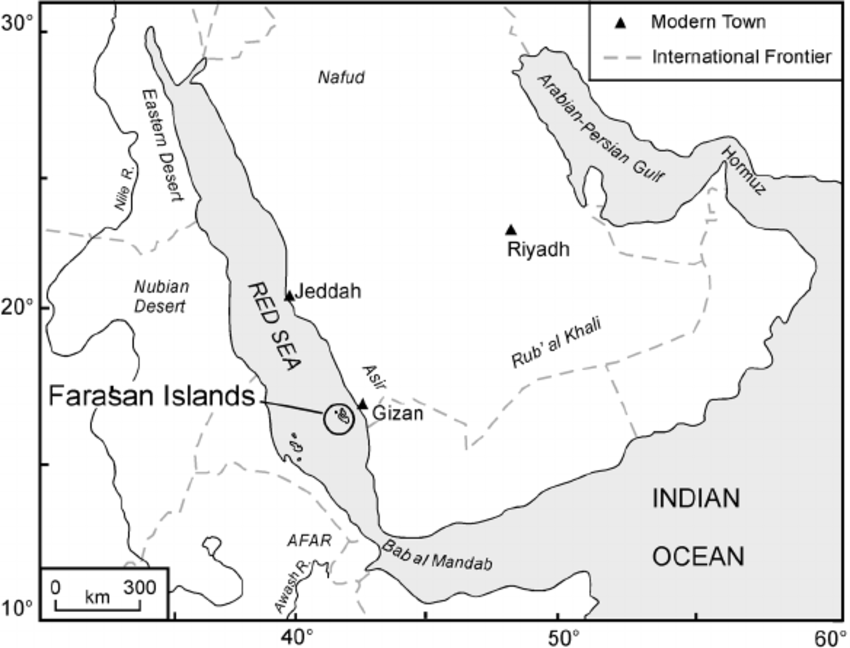
The Farasan Islands Issue
In the first part of the year 1900, the German government appealed to
the Bab-ı âli (Ottoman government) to build a coal depot on the island
of Kum, near Farasan Island (in the southern Red Sea). The purpose
for the coal station was to provide coal to German warships coming and
going to Japan for war. Consequently, the German government sought
permission from the Bab-ı âli, as the island's owner.
The Bab-ı âli considered the aspect of setting a bad example by
providing a foreign government with coaling services in a place where
other foreign governments had none. In this context, and in order to
preserve the good relations between the Ottoman Empire and Germany,
the Bab-ı-âli informed Baron Marshall, the German ambassador in
İstanbul, that it would be more suitable for the Ottoman Tersane-i
Amire (Ottoman naval shipyard in Istanbul) to prepare such a coaling
station that German warships could avail themselves of on the island in
question.
However, in November 1900, a German ship arrived at Kum Island,
built a pier and unloaded an amount of coal there. The Germans then
proposed that the coal depot to be constructed on the island be given
over for the exclusive use of Germany and added that the presence of
Ottoman soldiers on the island would be inappropriate.
Nevertheless, the Ottoman government issued a statement, which it
communicated to foreign nations, declaring that ships of other states
could use the prospective coal depot planned for Kum Island. This
statement, though, annoyed the Germans and on 20 November 1900
Ambassador Baron Marshall sent a memorandum to the Bab-ı âli,
requesting that the Ottoman government issue a firm announcement
that the coaling station on Kum Island would be for the exlusive use
of German ships.
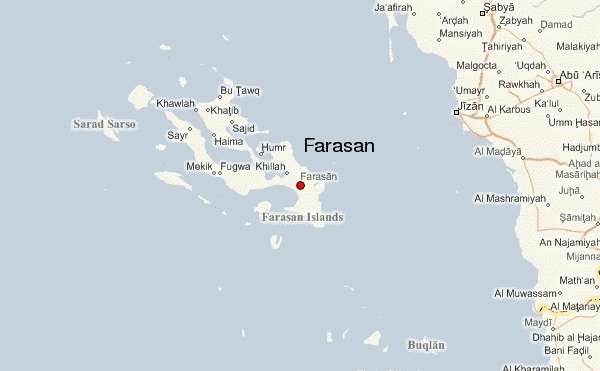
As the result of the subsequent negotiations between the German
Embassy in Istanbul and the Ottoman Foreign Ministry, the following
notes were exchanged:
Imperial German Embassy
No. 440
Confidential
Péra, 25 April 1901
The German Embassy has the honor of
informing His Excellency
Tewfik Pasha, Foreign Minister, the following:
The Imperial Ottoman Government, having
authorized the German
Imperial Government to load and unload coal for German
ships at
Farasan Island, the Imperial German Embassy accepts in the name of
its
Government under the following conditions the proposal formulated
regarding
this issue in the Council of Ministers and sanctioned by the
Irade of
His Imperial Majesty the Sultan.
It is understood that:
-- The locale that the Ottoman
Government is building will be used
exclusively for the stockpiling and storage
of coal that the German
Government will deem necessary for leaving temporarily
against
payment of an appropriate rent. The Ottoman authorities will take
all
police measures to assure the depot’s security.
-- All expenses occasioned by the
loading and unloading of coal will
be entirely the responsibility of the German
Government. Given that
the German
Government has no other intent than that having available
in all security a
coal depot on Farasan Island, it will completely abstain
from seeking to obtain
profit from the island’s resources.
-- In order to assure a perfect
exactitude of in the obtaining and delivery
of the coal that will be deposited
in the specified locale, two German
wardens will be appointed for these
operations. Aside from their
established tasks, these wardens will have to
abstain from interfering
for any reason in any matter other than that touching
upon the receipt
and the delivery of coal.
-- In consequence,
the agreement is established on the prescribed basis
and will be maintained in
its totality.
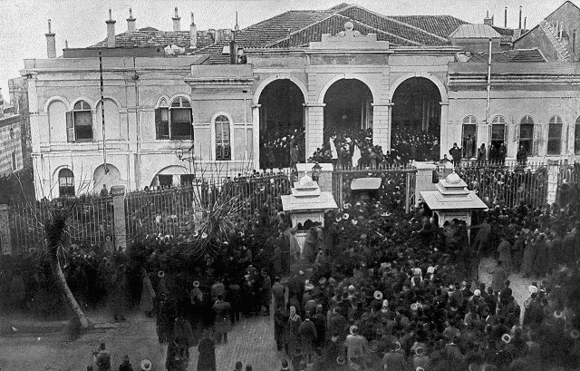
Bab-ı âli, the seat of the Ottoman Government.
Responding to the German Embassy's note, the Turkish Foreign
Ministry sent the following message:
The Sublime Porte
Foreign Ministry
No. 42051/18
29 April 1901
By order of His Imperial Majesty the
Sultan, Tevfik Pasha, Foreign
Minister of the Ottoman Empire, has the honor to
acknowledge receipt
and recognize the declaration that His Excellency, the
Baron Marschall,
the German Ambassador, had kindly submitted on 25 April
1901
concerning the temporary leasing by the Imperial German Government
under
the four following conditions, of the facility built on Farasan
Island by the
Imperial Ottoman Government to serve as a coal depot:
-- The facility that the Ottoman Government is
having built will be
exclusively for the keeping and
storage of coal that the German
Government will deem necessary for temporary
deposit against a
suitable rent. The Ottoman authorities will take all
necessary police
measures to guarantee the security of this depot.
-- All expenses occasioned by the loading and
unloading of coal will
be entirely the responsibility of the German Government.
-- Given that the German Government has no
intention other than that
of secure possession of a coal depot on Farasan
Island, it will entirely
abstain from seeking profit from the Island’s sources
of wealth.
-- In order to assure perfect exactitude in
the receipt and delivery of
coal that will be deposited in the determined
locale, two German
wardens will be assigned to these operations. Outside of their
determined duties, these wardens should abstain from interfering under
any
pretext whatsoever in any matter other than that which touches
upon the receipt
and delivery of coal.
By consequence, the agreement is established on the prescribes bases
and will
be maintained in its entirely.
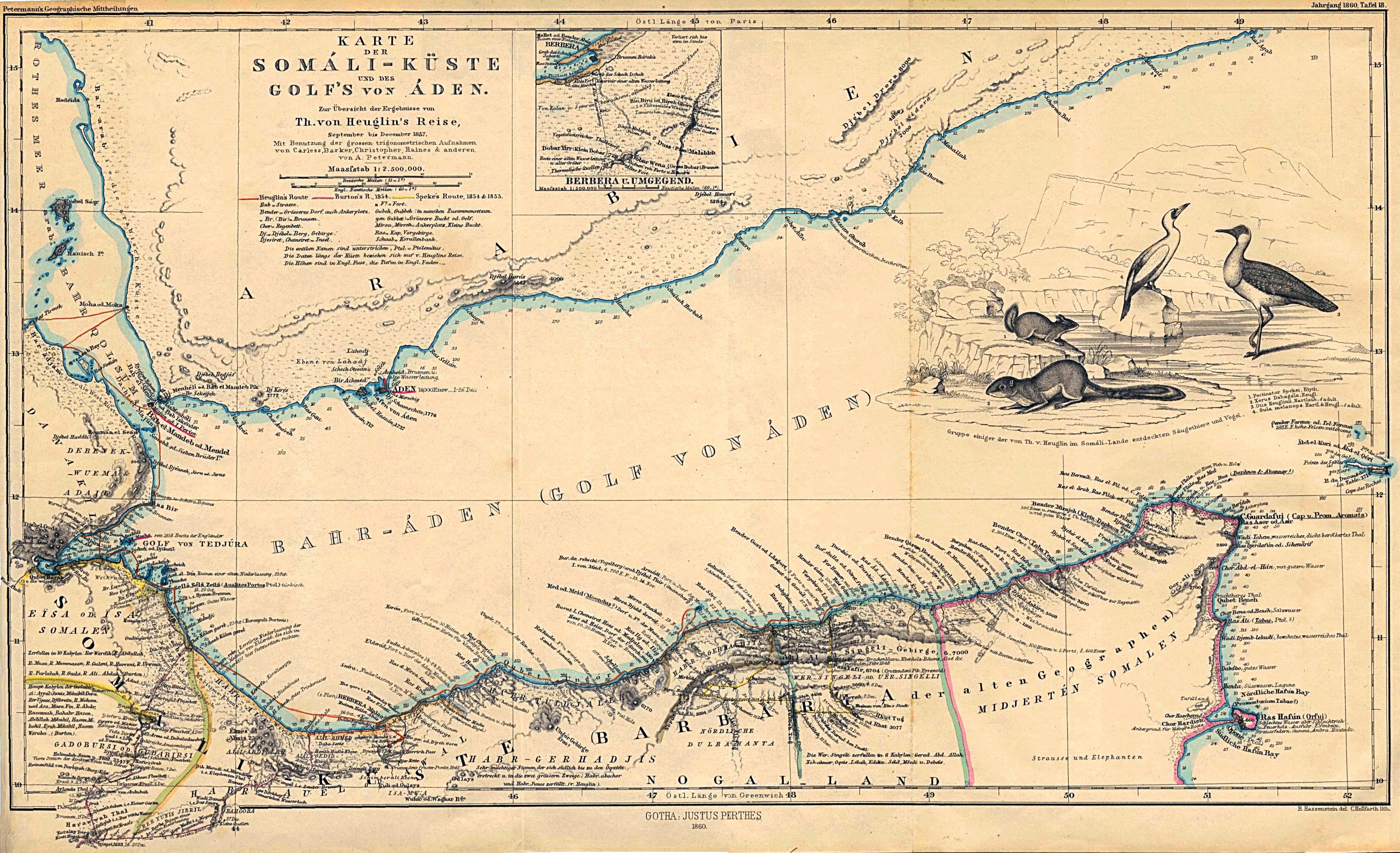
On this old map, the Farasan Islands are at the upper-left.
As a result of the mutual agreement of both sides, the decision was
implemented. At the present time (March, 1917), though, the island in
question is occupied by the English fleet but must be evacuated and
returned to the Ottoman State at the conclusion of the current war
(World War I).
Subsequently, the Ottoman Government should put the 1901 decision
with Germany back into force or renegotiate it on more favorable terms.
Bab-ı âli 28 November 1917
((signed)) Ottoman Ambassador Fahreddin Rumbeyoğlu
Senior Ambassador to Rome Mehmed Nabi

Mehmed Nabi Bey, second from left, Fahreddin Rumbeyoğlu,
second from right, during the signing of the Uşi Agreement
with Italy in 1912.

Hiç yorum yok:
Yorum Gönder